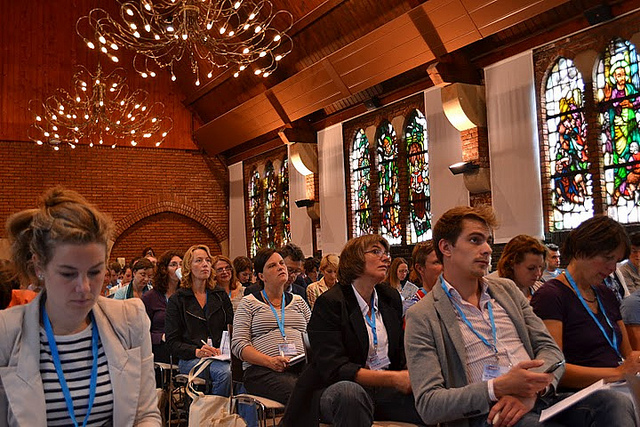Involve’s ‘Room for a View’ represents an important intervention in the debate on democracy’s future direction
Following the publication of ‘Room for a View’ by Simon Burall of Involve, the organisation asked significant voices from academia, research, and political science to respond to its arguments. Here, Graham Smith of the Centre for the Study of Democracy at the University of Westminster briefly reflects on its lessons.

Credit: MuseumFuture, CC BY SA 2.0
Simon Burall’s Room for a View represents an important reflective intervention from an experienced voice from the world of democratic practice. It was my pleasure to host Simon as a visiting fellow at the Centre for the Study of Democracy (CSD) at the University of Westminster. Normally our visitors come for a semester or a year to wrestle with some knotty problem in democratic theory. Simon came for two weeks. But in that time, Simon adjusted to life beyond his hectic leadership duties with Involve and threw himself into a brief but fruitful engagement with recent academic work. It’s quite a challenge – and responsibility – to be faced with someone who says ‘tell me what’s the one thing I should read? I’ve only got a fortnight!’
What is so interesting about Simon’s piece from my perspective is how the recent work in democratic theory – in particular on democratic systems – spoke to his condition and how he refashioned these ideas in relation to his practical concerns. Academics (well, some) worry that their ideas are too abstract and distant from everyday practice. Room for a View is a result of this practice-theory encounter and speaks volumes for the need to create more opportunities for fruitful and creative engagement across communities that too rarely interact.
I have an ambiguous relationship with the turn to deliberative systems in democratic theory. I recognize the charge that both theorists and practitioners tend to be too focused on individual instances of participation with not enough regard to the role that deliberation plays across the broader democratic system in a range of institutions, associations and networks. However, I worry that some deliberative theorists have become so focused on the systemic level, that they disregard and on occasion accept the existence of non-deliberative practices that can encourage the marginalization and oppression of vulnerable groups – as long as the overall impact is positive for the system as a whole.
That said, I can see why for Simon and other democratic practitioners the systems vocabulary is of value – potentially offering them novel ways to conceptualise and understand the role and impact of their work. And in so doing, potentially helping them to reframe their activities.
I was pleased to host Simon and see it as part of CSD’s mission to continue to develop opportunities to work with civil society organisations, in particular from the democracy sector. Activists, practitioners and academics have a great deal to learn from each other.
—
This blog was written in response to the launch of the report Room for a View by Involve’s director Simon Burall. Read the full report and follow Involve on Twitter.
This post represents the views of the author and not those of Democratic Audit UK, or the LSE. Please read our comments policy before posting.
—
 Graham Smith is Research Director and Professor of Politics at the Study for the Centre of Democracy at the University of Westminster
Graham Smith is Research Director and Professor of Politics at the Study for the Centre of Democracy at the University of Westminster





 Democratic Audit's core funding is provided by the Joseph Rowntree Charitable Trust. Additional funding is provided by the London School of Economics.
Democratic Audit's core funding is provided by the Joseph Rowntree Charitable Trust. Additional funding is provided by the London School of Economics.
[…] to think and the source material which stimulated my thinking as I wrote Room for a View. In his blog post responding to its publication, he highlights a significant tension contained within my […]
Involve’s ‘Room for a View’ represents an important intervention in the debate on democracy’s future direction https://t.co/8IGqRGVJDM
.@Smith1966G lent me an office and lots of books to research our latest report, Room for a View. Here’s his reaction https://t.co/vZFRQ3Qjkl
[…] Visit the site […]
Involve’s ‘Room for a View’ represents an important intervention in the debate on… https://t.co/p0XVqX8bTn https://t.co/pyuW8nffnR